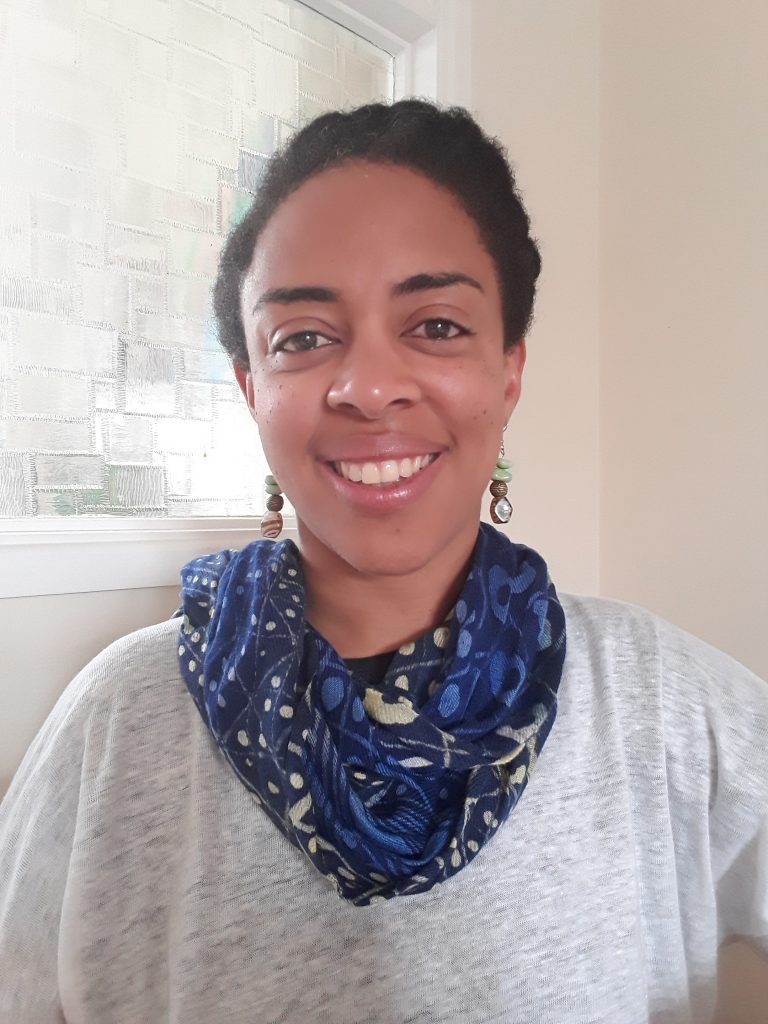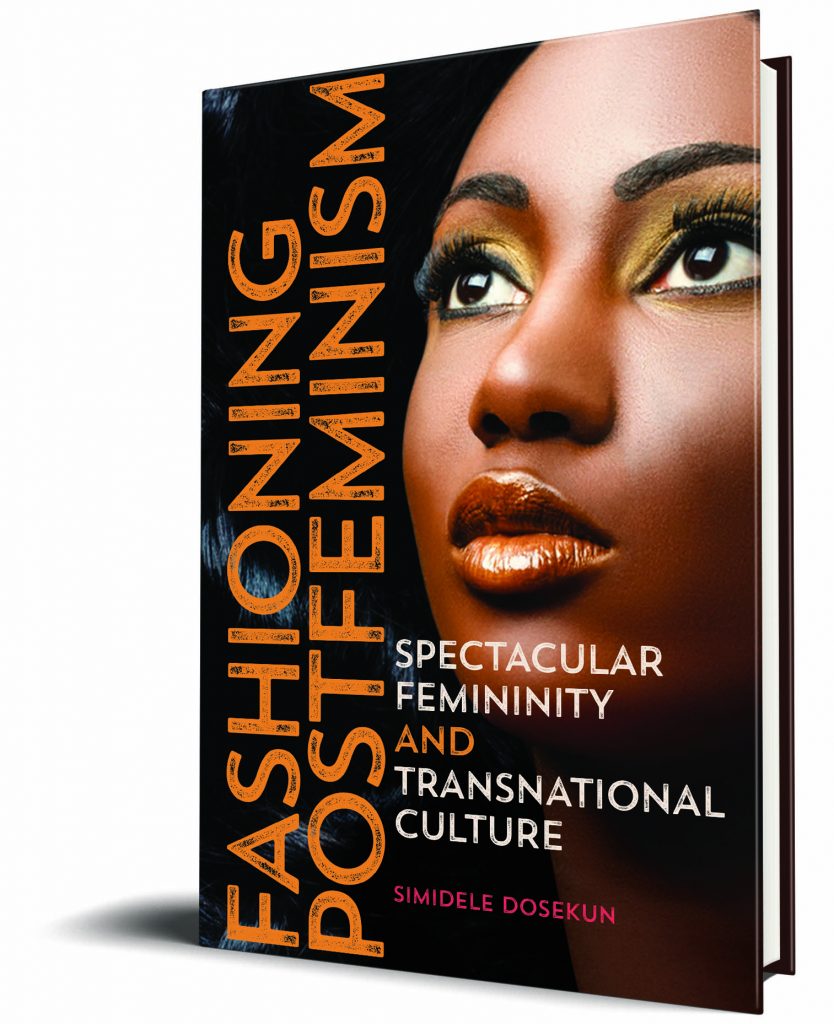Simidele Dosekun, author of Fashioning Postfeminism: Spectacular Femininity and Transnational Culture, answers questions about feminist influences, discoveries in Lagos, and what she wants readers to learn.
Q: Why did you decide to write this book?
I moved back home to Lagos in 2007 after my master’s degree, having been away, studying abroad, for a total of 12 years. My first job was as a freelance editor for a glossy Nigerian women’s magazine and I remember noticing that the young women in the office, who were educated and privileged or upwardly mobile, were extremely spectacular in their appearance. And then I began to see the same style, or rather the same degree of stylization, more and more in the social spaces that I inhabited in the city. Part of how and why I noticed all this was by being noticed myself, and told, how unspectacular I was by comparison! So all this sparked my interest in the new style of dress I was seeing. I wanted to know what it was about, and this from the point of view of the young woman who were appearing in it.
Q: Who were your biggest influences?
I have had and continue to have many intellectual influences, feminist especially I should emphasise! Amina Mama, a well-known African feminist scholar, now at UC Davis, has had a big influence on me both in her early work on black female subjectivity and in the close working relationship I have been privileged to develop with her. Rosalind Gill, a British feminist scholar at City University London, is also very important to me, again both intellectually and personally. Her work on postfeminism very much informed the direction of the book. There are many others whose work I really draw on: Shirley Tate, Sara Ahmed, Judith Butler, Inderpal Grewal, Achille Mbembe, and more.
Q: What is the most interesting discovery you made while researching and writing your book?
Even before I went to Lagos to do interviews for the book, I
anticipated that postfeminism would be a relevant concept through which I could
understand the new style of femininity that I was researching. But I did not
anticipate and was really surprised by the degree to which the research
participants spoke of and represented themselves in the very terms discussed in
the academic literature on postfeminist subjectivity. In some of the
interviewers I almost felt that the women must have read the literature
and were essentially citing it back to me! This raised really interesting and
complex questions for me, that I try to reflect upon in the book, and that continue
to call for more thinking and theorising, about how it is that as subjects we
make ‘discourse’ our own, or how ‘culture’ gets inside us all, stirring our
desires and deep sense of who we are or could or should be.

Q: What myths do you hope your book will dispel or what do you hope your book will help readers unlearn?
The kinds of women I interviewed in Lagos – glamorous, privileged, highly educated and articulate and so – remain under-seen in both academic work about, and popular imaginaries of, Africa. I have been told in various ways when I present the research that these women are ‘not real African women,’ that they are ‘inauthentic’ subjects, and so on. I hope the book contributes to more complex understandings of Africa and African life, to the recognition that there are a host of ways to be African. I think to fail to see or allow constitutes a certain symbolic and psychic violence against Africans. In terms of academic research, it also means that we are foreclosing critical interrogation of African-ness in all its complex and highly political permutations.
Q: What is the most important idea you hope readers will take away from your book?
I hope readers take away the conviction that we must resist facile, consumerist and individualist claims about women’s empowerment, and instead insist on feminism as a difficult and even ‘unhappy’ politics, as trouble-making to paraphrase Sara Ahemd. The book shows how much damage celebratory notions and promises of women’s empowerment do to a particular set of women; the high cost they pay for buying into notions that they can have it all if only they push themselves all the more, when in fact gendered social structures still so obviously favour men and disadvantage women.
Q: What do you like to read/watch/or listen to for fun?
I mostly read African and African-American literary fiction, and I listen to Nigerian music, including relatively old-school Yoruba music of late! It’s always awkward to admit given that I am in media studies, but I hardly follow any popular series and so on! When students mention the latest shows they are watching, or a new pop star or the other, I often have absolutely no idea what they are talking about!

